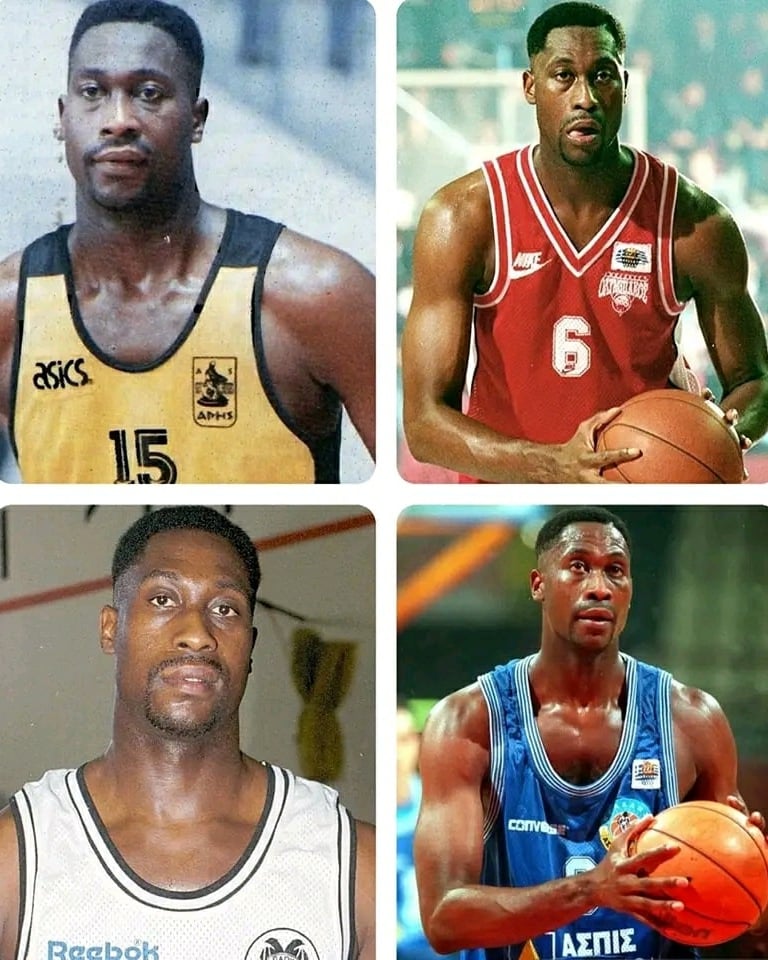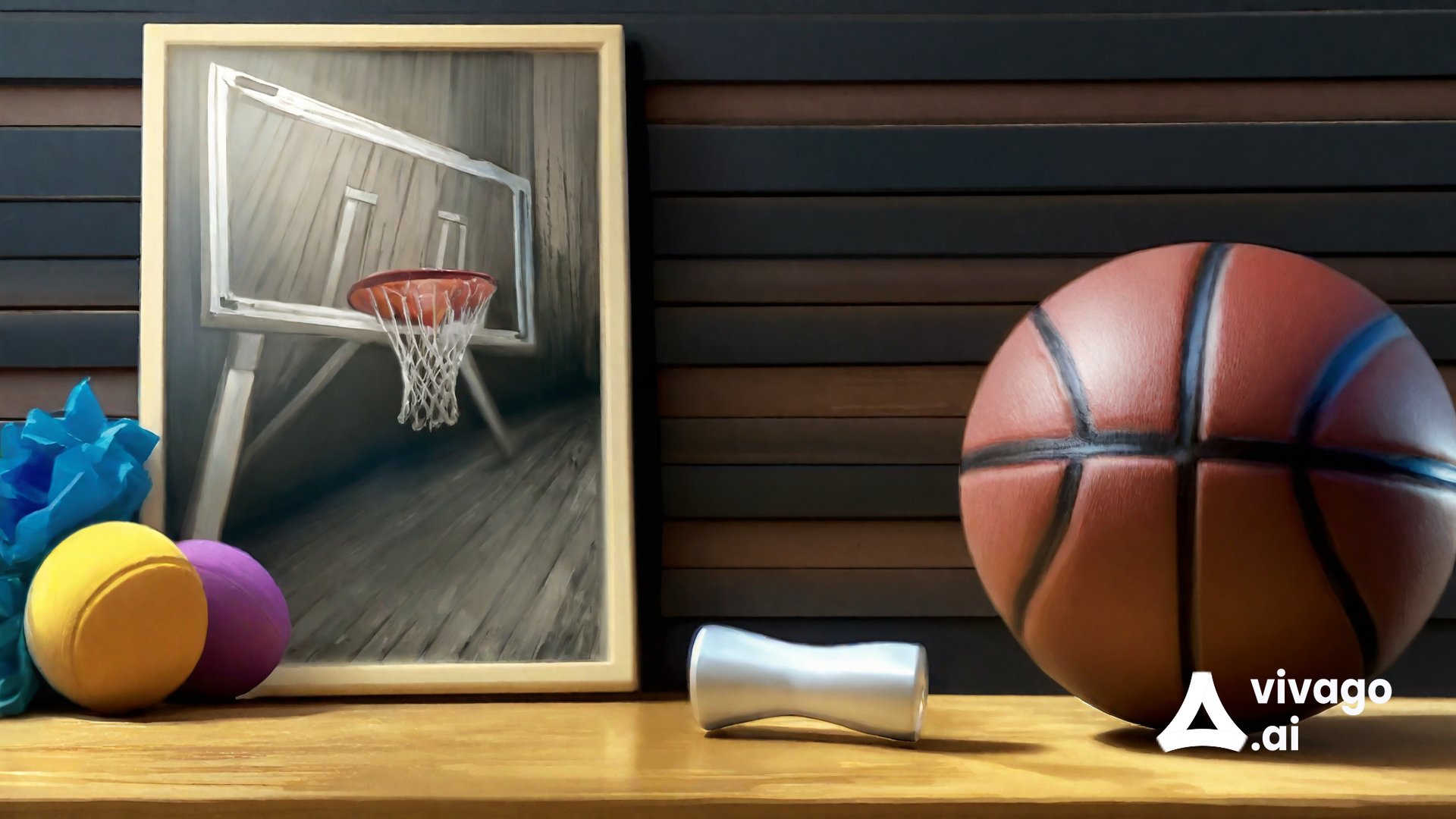
Walter Berry
"The Truth"
RETROPLAYERS
Antreas Tsemperlidis
5/27/202510 min read
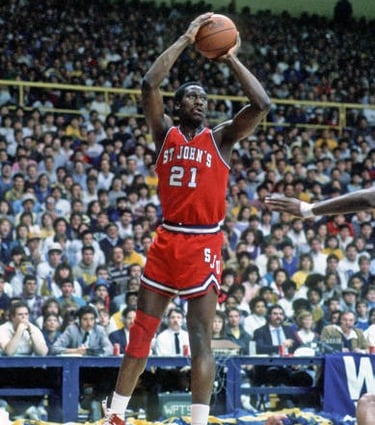

Thirty-seven years have passed since that pivotal year of 1988, when the Greek Basketball Federation allowed first division basketball clubs to strengthen their rosters with foreign players. Among the hundreds who passed through over the years, hailing from every corner of the globe, only a select few managed to earn the respect and affection of basketball fans across all club loyalties. One of them is today’s protagonist, who celebrates his 61st birthday. I’m certain that those who remember him can’t help but smile at the thought of that legendary “something like a shot.” And perhaps you’ve already turned to YouTube, eager to watch him once more and ask yourselves again, “How on earth did this guy even play basketball?”. That very question followed Walter Berry throughout his entire career—and was never truly answered.
His career, as a true product of the famed Class of ’86, had all the makings of an NBA All-Star trajectory. But Berry made sure to derail that path and instead spent most of his professional life lighting up Greek courts, making the nets sigh under his touch. Strange, really, to speak of nets since in the playgrounds of New York City, where Walter was born and raised, such luxuries were rare. Yet like all great playground legends, this didn’t stop him from etching his name into the game’s street-level history, leaving his mark on the concrete that, truth be told, he never truly left behind. Every summer, while his future teammates were sweating through gruelling training camps, Berry was out earning a living through high-stakes pick-up games, with thousands of dollars riding on each outcome. He would simply wait for the phone to ring, signalling it was time to board a flight to his beloved Greece - a country he likely hadn’t even realized had a professional league until he arrived.
Berry ended up in Greece “by accident” and a destination more suited to his profile for vacation rather than basketball, would become home.
The natural trajectory was clear: college basketball star, high draft pick, and a stellar NBA career; a path that up until 1988, was unfolding exactly how things were foreseen. After dominating at the high school level and being named Mr. Basketball, every major college program lined up to recruit him. The lucky coach was Lou Carnesecca of St. John’s - the pride of New York City, just like Walter Berry himself. Unfortunately, fans would have to wait a year before seeing him suit up for the Red Storm. He failed to meet the academic eligibility criteria, and so he was “exiled” to Texas, enrolling at San Jacinto Junior College. There, out in the Wild West, he breezed through the competition, playing for fun more than anything else. When this sidestep was done, he returned to his hometown ready to take the demanding Big East by storm. He immediately claimed a spot in the starting lineup, and alongside Chris Mullin, led St. John’s to the No. 1 national ranking and the 1985 Final Four. It was Patrick Ewing’s Georgetown that would end their championship dreams, but Walter had already cemented his place among the top players in the country. With Mullin graduating, Berry became the undisputed leader. That same season, he also earned the nickname that would become synonymous with his identity. It was teammate Shelton Jones who coined it when asked by a reporter what kind of impact Berry would have at the NCAA’s highest level, his answer was cuttingly simple:
“Man, Walter is the truth.”
He wasn’t the only one singing Berry’s praises that year. Even the legendary Jerry West, after watching one of Berry’s commanding performances against UCLA, couldn’t hold back:
“Tonight, Berry looked like a man playing with little kids.”
Recognized as one of college basketball’s elite, Berry declared for the infamous 1986 NBA Draft. As a side note: beyond its renowned status, that draft holds special interest for Greek fans as a staggering 18 of its picks would eventually play professionally in Greece!!!
Berry’s draft position was surprisingly low, given his talent, going 14th overall to the Portland Trail Blazers. But he wouldn’t wear the Blazers’ jersey for long. He was quickly dealt to the San Antonio Spurs, where, in the familiar setting of Texas, he immediately earned a starting role at small forward. Despite the team’s poor performance, Berry validated the Spurs’ faith in him. He carried that momentum into his second season. He scored, rebounded and became a fan favourite but the SAS team continued to struggle.
That’s when the cracks began to show. His resistance to structure became more apparent. He had no reliable outside shot, lacked playmaking skills expected from a ‘3’, and was considered undersized and defensively limited for a traditional ‘4’. The first clouds began to gather over sunny Texas. The storm would break out with the arrival of head coach Larry Brown, a newly crowned NCAA champion and a staunch disciplinarian. Brown made it clear: Berry was not in his plans. Complicating matters further, Berry’s name resurfaced in connection with a drug investigation dating back to his college days at St. John’s, even drawing the attention of the FBI. The atmosphere was toxic. “The Truth” had become too much of a burden and a trade seemed the only viable option. The New Jersey Nets took a chance on him, hoping he could prove he belonged in the NBA. But that hope was short-lived and he was released by January 1989. The Houston Rockets picked him up next, still believing in his raw talent, but it would prove to be his final stop in the league. His time in Houston ended in disappointment, and under the shadow of yet another rumoured incident -reportedly chasing a teammate through the locker room with a knife- no team was willing to offer him a guaranteed contract again.
Europe became the only path forward for Walter Berry, though he could never have imagined it would become his home for the next thirteen years. The main reason was financial. Berry’s frugality and obsession with money were legendary, borderline comical. In the NBA, his earnings had been modest, whereas European contracts promised significantly better paydays. So, in the summer of 1989, “The Truth” made his way to southern Italy, signing with Napoli. His presence proved decisive, helping the team avoid relegation. And thus began a now well-established pattern: Berry would never stay with the same team for more than a single season. In 1990–91, he moved to Spain, joining Atlético Villalba, owned by the eccentric Jesús Gil. In the ACB League, Berry delivered staggering numbers: 33 points and 12 rebounds per game.
Following the rhythm of the Mediterranean, his next destination seemed inevitable: Greece and more specifically, Thessaloniki. Aris brought him in to bolster the squad, but he would only stay for ten games. Financial instability within the club and the ever-persistent rumours of “sabotage” by Nikos Galis, forced Berry to pack his bags once more and return to Napoli.
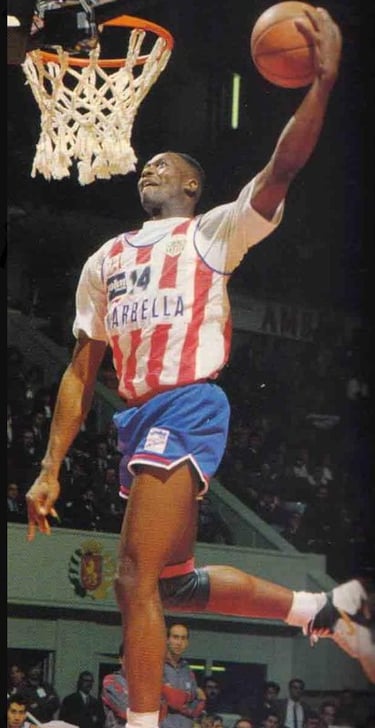

Yet Greece wasn’t done with him. In September 1992, legendary coach Giannis Ioannidis was looking for a replacement for Rod Higgins. Berry arrived at Olympiacos amid a cloud of scepticism and second guesses. But any doubts vanished the moment he stepped onto the court in his debut against Estudiantes in the European Champions Cup. He would go on to complement Zarko Paspalj perfectly, assuming the role of a high-calibre second fiddle. His rebounding prowess freed the Montenegrin star to lead Olympiacos’ lethal fast breaks. The team came heartbreakingly close to qualifying for the Final Four at the Peace and Friendship Stadium - denied only by a cruel line call in Boblan.... but that’s a story for another day... Still, by the end of the season, Berry had something to celebrate: the first championship title of his career. Despite his averages of 20 points and 11 rebounds, Olympiacos chose not to retain him. His journey would continue elsewhere.
In their search for a replacement for Livingston, PAOK did not hesitate. They seized the moment and dressed Berry in black and white. What followed was a basketball symphony. Alongside Zoran Savić, Berry formed a duo that dazzled fans and opponents alike. Their on-court chemistry was seamless, producing basketball of rare elegance. In the two-legged Korac Cup finals, Berry was simply uncontainable, as neither Gregor Fučka nor Joe Whelton’s Lampley could slow him down. He played a pivotal role in PAOK’s campaign to reclaim the national crown, but his former club would not surrender it so easily.
True to his nature, Berry did not linger long in Thessaloniki. He left PAOK and the Alexandreio Arena behind and moved next door to the Ivanofeio, donning the jersey of Iraklis. And there, under the guidance of "Pixie" -Dušan Ivković’s disciple- Slobodan Subotić, Berry’s game reached stratospheric heights. Subotić introduced an unorthodox mid-sized lineup, rotating Berry with Papachronis across the two frontcourt spots. The core of the team's strategy was simple: isolation basketball. Give the ball to Berry and get out of the way. Week after week, court after court, the "Truth" delivered masterpieces. The best centers in Greece tried in vain- to block him. Even the continent’s most feared shot-blocker, Stojan Vranković, whom Berry himself later admitted gave him the most trouble, couldn’t keep up. That season, Iraklis soared to unprecedented heights thanks to their American star. Third place in the Greek league, a historic qualification to the European Champions Cup, and a deep run to the Cup Winners’ Cup semifinals, where they were unjustly eliminated by Taugrés. No matter the superlatives—magical, otherworldly, unforgettable - none feel quite enough to capture the essence of that year. Perhaps the numbers speak louder: 30 points and 13 rebounds per game!!! Berry, perhaps carried away by his own brilliance, would go on to tell an Italian newspaper that summer he was Greece’s top scorer and rebounder -which was true- but with 40 points and 25 rebounds per game. A claim that would’ve made even Wilt Chamberlain raise an eyebrow. This sensational season would earn him a familiar destination: a return to Olympiacos, a team in need of a tried and trusted solution and Berry was just that.
However, he would miss half the preseason as he had no intention of running up the slopes of Sportilia, driving coach Ioannidis to fury. But once the games began, the Berry everyone knew reemerged. At least until December 12, 1995. That was when Olympiacos’ medical team issued a bombshell: Walter Berry had contracted hepatitis B. Thankfully, his strong immune system, honed by years of elite athleticism fought back. Though initial speculation swirled about a possible early retirement, Berry returned to the court after a three-month absence. He would go on to help Olympiacos capture another league title.
Not only did he resume playing, but he would once again journey north to Thessaloniki, this time donning the jersey of Aris, the club that had first brought him to Greece. But time, and the brush with illness, had left their mark. His game, once flowing and dominant, now carried the weight of years and the shadow of mortality. Perhaps that’s why his stints with the “Emperor” Aris felt underwhelming. Truth be told, Aris at the time didn’t have the reputation of a reliable paymaster - and everyone knew Berry’s relationship with money. His contribution to the club was best encapsulated by a memorable quote from the majority shareholder, Zafeiris Samoladas:
"In my entire life, I only once paid in gold - and that was Berry."
On the other side of the Alexandreio, however, in black and white, Berry was always held in high regard. So much so, that PAOK brought him back once again for the 1998–99 season. Their faith was rewarded with a trophy. PAOK lifted the Greek Cup, and Berry, naturally, was named Final Four MVP.
As expected, he didn’t stay. Keeping with tradition, Berry moved on once more. After a brief detour through Slovenia, he returned to Greece one final time, appearing in two games for Makedonikos. Italy and Venezuela would mark the final stops of his basketball odyssey in 2002. And then, he was gone. He vanished from the basketball scene, his only trace a legendary black shoulder bag forever slung across his chest. No one ever discovered what it held.
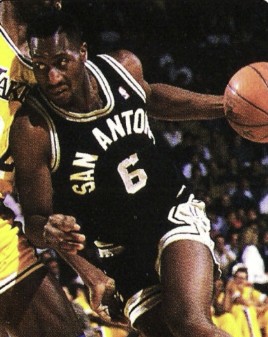

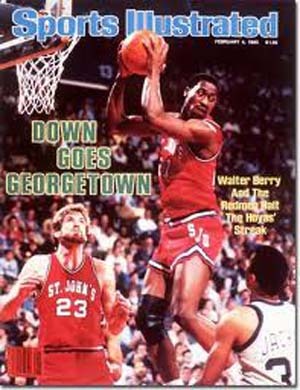

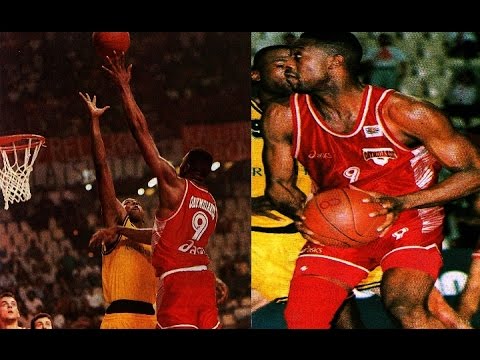
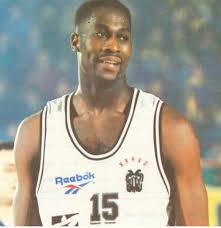
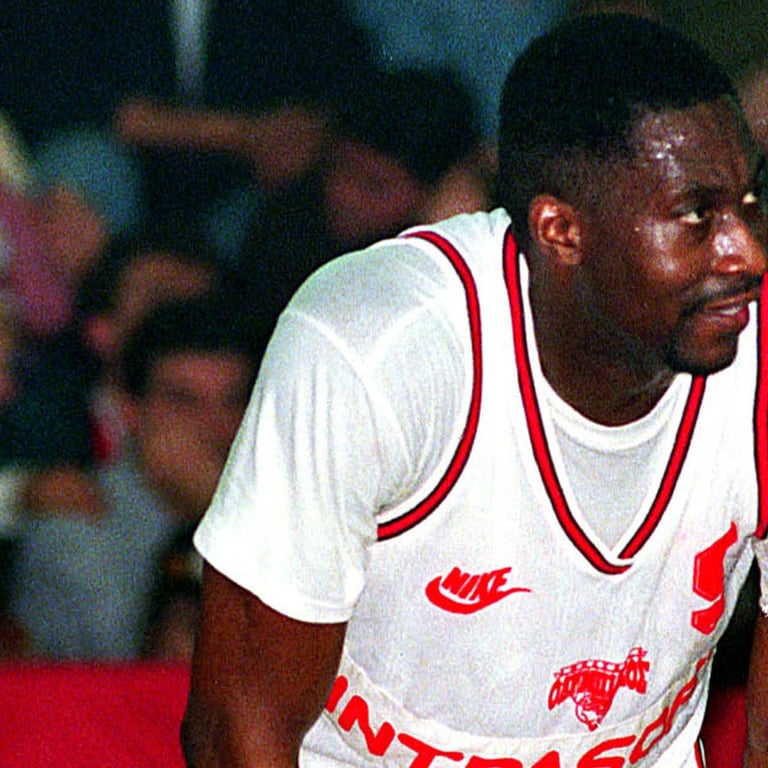
The stories surrounding “The Truth”? Some known, many unknown. All unforgettable.
Like the time he chased Olympiacos owner Sokratis Kokkalis around a hotel wearing nothing but a towel, because he thought he’d been shortchanged ten dollars from a meal bill. Or the near-miraculous twist of fate when, after forgetting his passport and missing a flight, the plane crashed, killing all 229 on board. Or the time he filled a Mercedes provided by Olympiacos with cheap diesel instead of premium gasoline, thus wrecking the car. Then there was the infamous rebound dispute: Berry exploded in rage when a single rebound was missing from the official stats. Why? His contract included a bonus clause for each board.
And of course, there was his blissful ignorance of tournament formats:
"I know the next game against Apollon in Patras is critical for our qualification to the Final Four," he once said—blissfully unaware that… it wasn’t.
But therein lay the essence of "The Truth”. He was always exactly what his nickname promised. Genuine. With that perpetually tired expression, the uninspired haircut, the sluggish stride with arms glued to his sides.
Athletic? Hardly.
Muscular? Please.....he probably didn’t even lift more than 50 pounds his entire career.
His right hand? Reserved strictly for shifting gears.
Yet none can find one man -just one- who can claim guarding him was easy. Yes, he was predictable. But you couldn’t stop him.
His shooting form? A coach’s nightmare. More like heaving watermelons into a pickup truck than textbook technique.
But the effectiveness? Unquestionable. His numbers, his dominance, his longevity in Greece—wrote history.
Walter Berry wasn’t just a cult figure of Greek basketball. He was, by any reasonable measure, among the greatest foreign players ever to set foot in the Greek first division, regardless of position. If someone ever asks you, "What is truth?" Show them a video of Walter Berry. And they’ll understand why this clumsy, slow-moving American became one of the most beloved imports in the history of Greek basketball.
Berry verified the truth.
